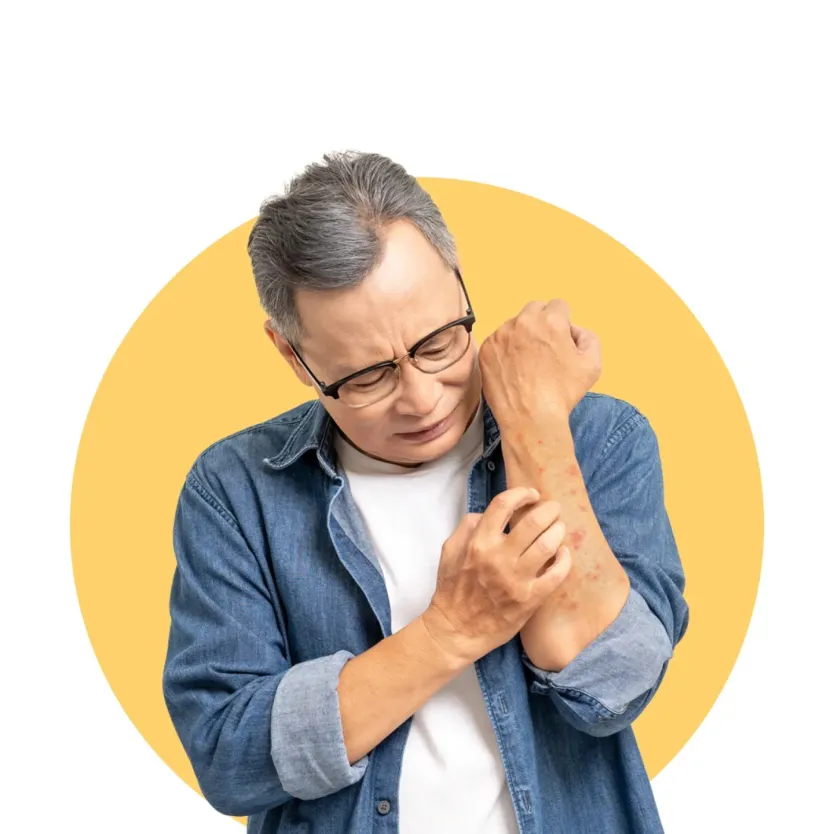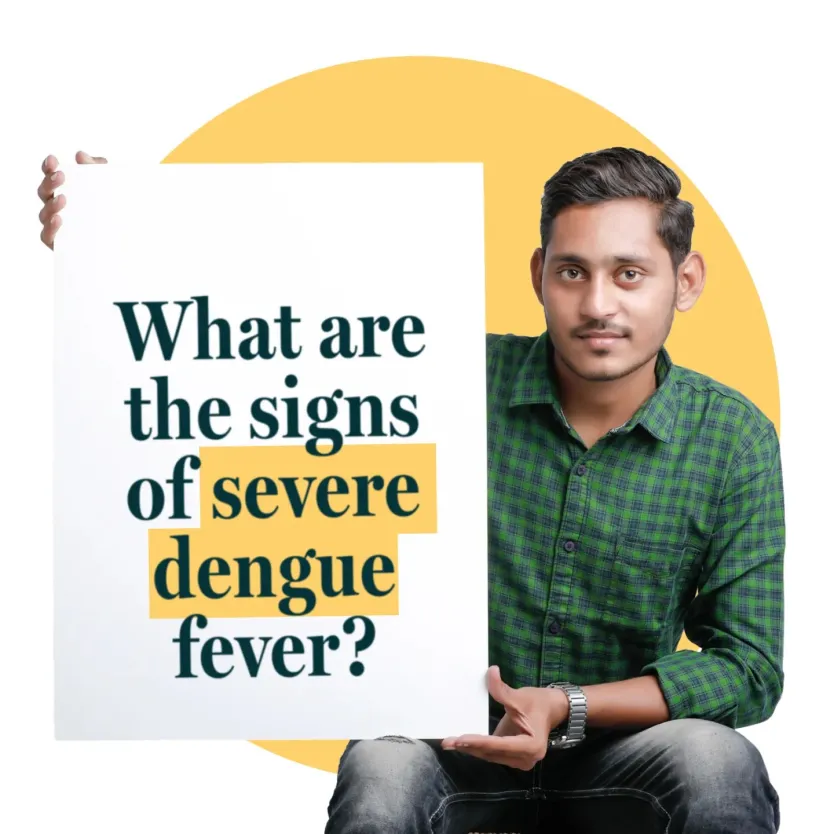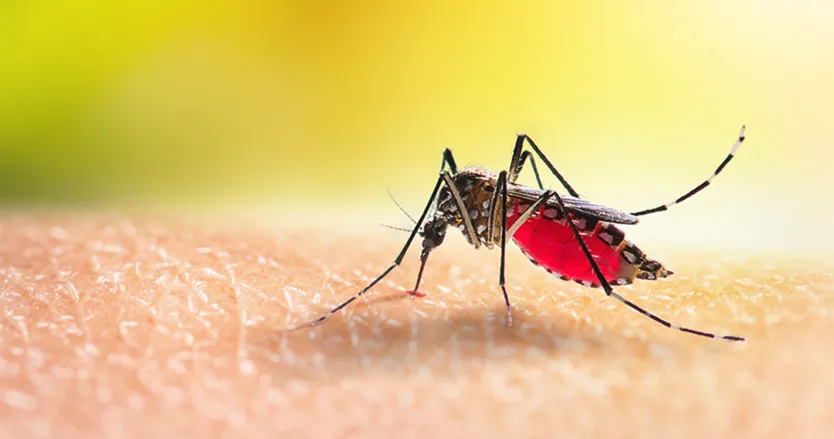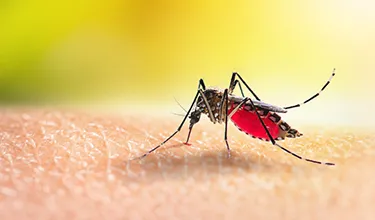The Symptoms of dengue over time
Most people with dengue fever have no symptoms. For those who do experience symptoms, they are typically mild and get better within 1–2 weeks.1 Although symptoms and individual experiences of dengue fever vary, the infection can progress through a series of phases, outlined below.2,3
Dengue’s incubation phase
The signs and symptoms of dengue take time to develop.1 After being bitten by an infected mosquito, the dengue virus replicates in the body. This period of time, before symptoms develop, is called the incubation phase.2,3
Dengue’s ‘febrile’ (feverish) phase
The initial symptoms of dengue usually develop around 5–7 days after infection, and last up to a week This is called the ‘febrile’ (meaning feverish) phase.2,3 The majority of cases are mild, and most people recover after this phase.1,2
If you are experiencing symptoms of dengue fever, contact your doctor right away.4,5
Symptoms of mild dengue include:1
High Fever (40°C/104°F)
Severe headache
Swollen glands
Pain behind the eyes
Muscle and joint pain
Nausea and vomiting
Rash
If you have a fever, common recommendations include:4,5
Rest
Drinking plenty of fluids
Do not self medicate, especially with aspirin and ibuprofen as they can thin the blood which may increase the risk of bleeding
If you are experiencing any symptoms of dengue fever, contact your doctor right away.4,5
Dengue’s ‘critical’ phase: severe dengue
Around 1 in 20 people who experience symptoms of dengue fever go on to develop severe dengue. This is called the critical phase, which can be life-threatening and usually lasts 24–48 hours.3 Signs of severe dengue usually begin around 1–2 days after the fever has gone away.3
Warning signs of severe dengue include1,3:
Persistent vomiting
Severe stomach pain
Rapid breathing
Feeling tired or restless
Bleeding gums
Blood in vomit or stool
Studies suggest that young children may be more likely to develop severe dengue than others.6-8 Learn more about dengue in children.
People who have previously been infected with the dengue virus are also more likely to develop severe dengue.1
Contracting severe dengue should be considered a medical emergency. If you develop any of these warning signs, go to a hospital immediately.5
Dengue’s recovery phase
The final phase of dengue fever is called the recovery phase. During this phase, the body gradually begins to recover, and symptoms will improve.2,3
Natasha’s dengue fever symptoms, day by day
“Around the time I got sick I had fever initially and then coughing, I felt very week and very unstable emotionally, physically & I was just not able to do my work at all. Then on the fourth day the fever stopped but I had very bad diarrhoea and very bad vomiting, chills all over my body. And that´s when I started to get the rashes. I did not think that I had dengue, until I started getting rashes. So, I went to the clinic and then got my blood tested and they confirmed it was dengue.”
Natasha is one of an estimated 100 million people around the world who experience symptoms of dengue every year.3,9
There is currently no specific treatment for Dengue, so prevention is key.1,10 Learn more about dengue prevention.
References
World Health Organization. Available at https://www.who.int/news-room/fact-sheets/detail/dengue-and-severe-dengue. Accessed December 2024
Centers for Disease Control and Prevention. https://wwwnc.cdc.gov/travel/yellowbook/2024/infections-diseases/dengue. Accessed December 2024.
Centers for Disease Control and Prevention. Available at: https://www.cdc.gov/dengue/hcp/clinical-signs Accessed December 2024.
National Health Service. Dengue. Available at: https://www.nhs.uk/conditions/dengue/. Accessed December 2024
Centers for Disease Control and Prevention. Available at: https://www.cdc.gov/dengue/treatment/index.html. Accessed December 2024
Verghagen LM and de Groot R. J Infect. 2014 :69 Suppl 1 :S77-86.
Khan MAS, et al. BMC Pediatr. 2021 ;21(1) :478.
Hammond SN, et al. Am J Trop Med Hyg.2005 ;73(6) : 1063-70.
Centers for Disease Control and Prevention. About Dengue: What You Need to Know. Available at: https://www.cdc.gov/dengue/about/index.html. Accessed November 2024.
World Health Organization. Available at: https://www.who.int/emergencies/disease-outbreak-news/item/2023-DON498#. Accessed December 2024.




































